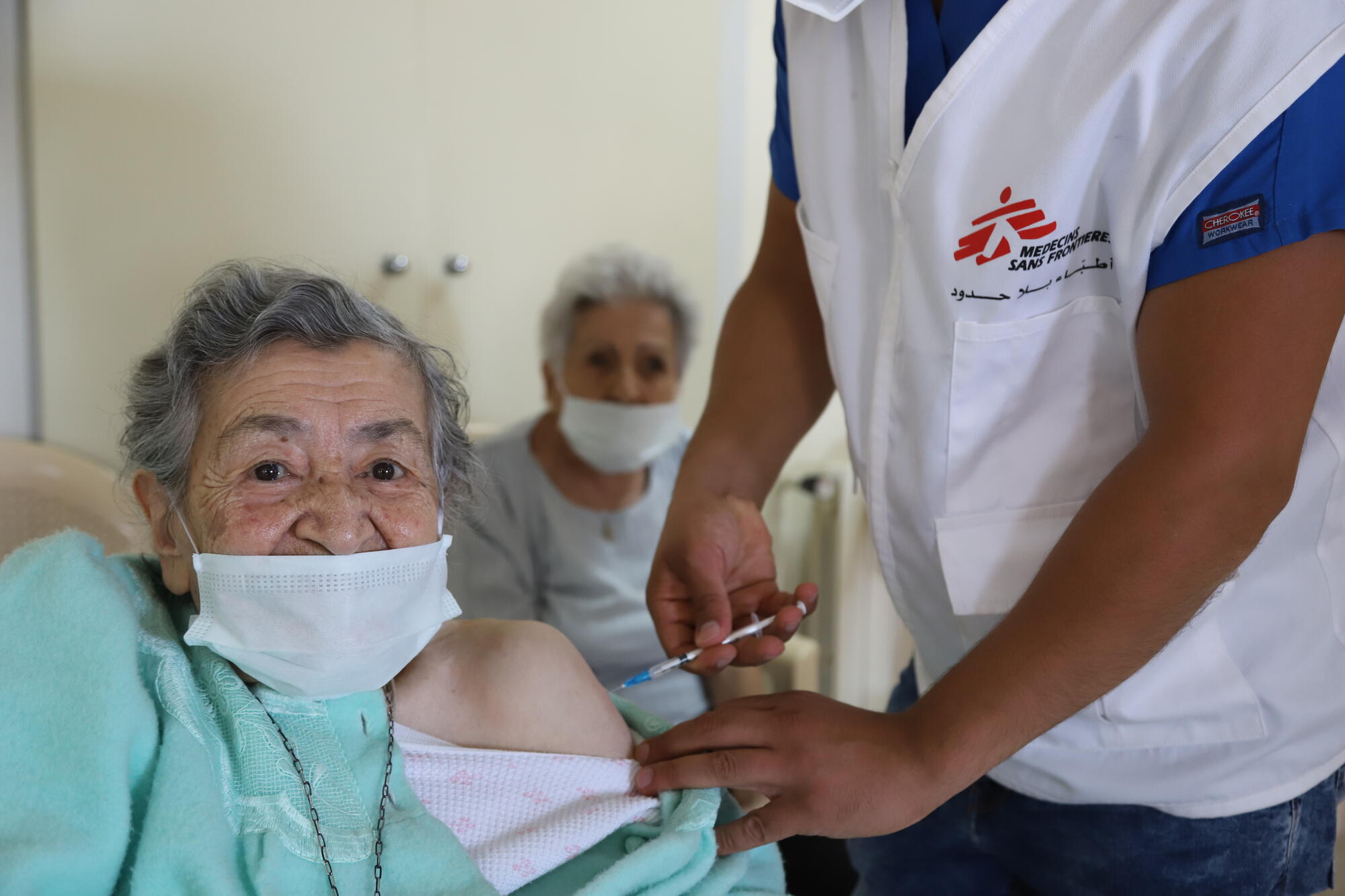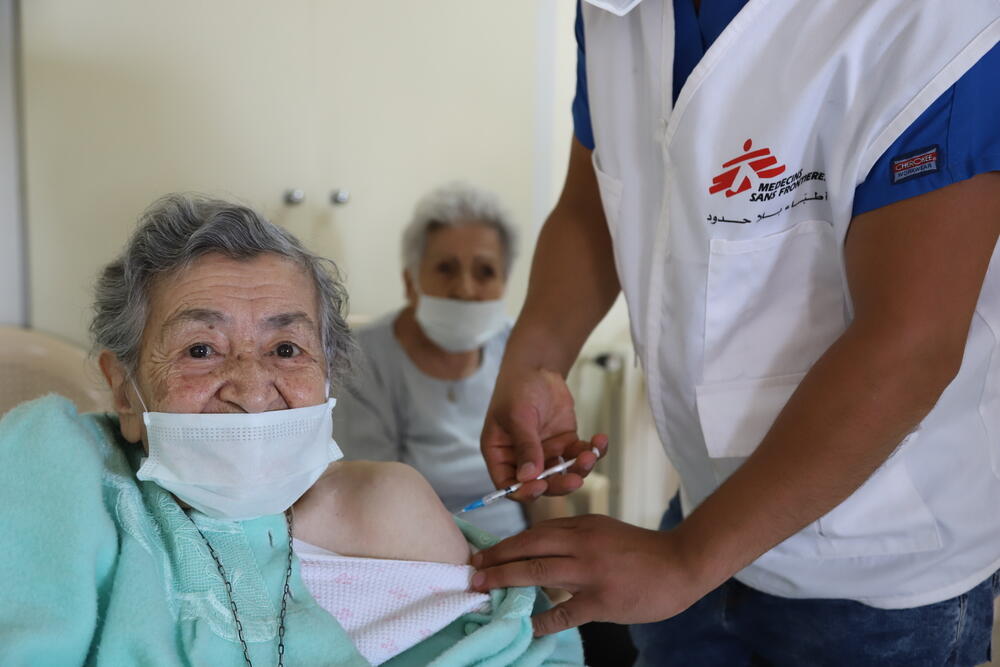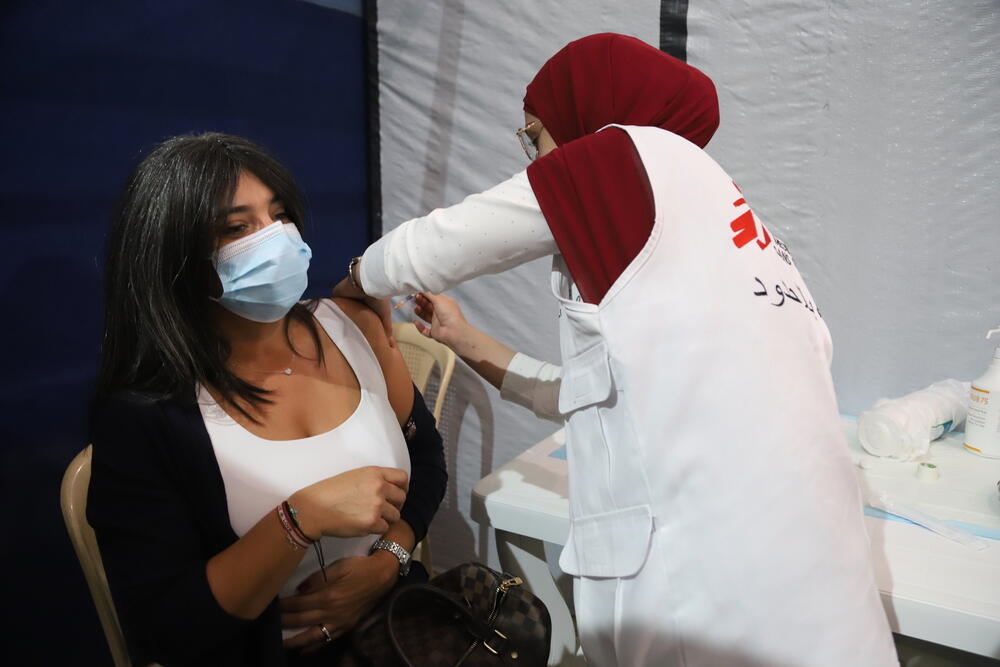Less than two years has passed since the world saw its first case of COVID-19. Since then, nearly six billion vaccinations have been administered, which is a staggering scientific achievement. However, fewer than one percent of these doses have been given in low-income countries.
Without the equal distribution of vaccines, cases will continue to surge around the world and millions of people will die from COVID-19.
The fastest way to save lives right now is for high-income countries like the UK to donate their excess vaccines.
With over 440 million COVID vaccine doses ordered, the UK is hoarding more than it could possibly need. Yet, millions of healthcare workers and vulnerable people around the world remain unvaccinated.
In June this year, the UK pledged to redistribute 100 million of its vaccines by June 2022, the majority through COVAX – an international scheme designed to ensure low-income countries aren't left behind in the pandemic.
While this may sound promising, as you’ll read below, the UK is doing far from enough to ensure people most in need are receiving their jabs. Three months on from the pledge, fewer than 10 percent of vaccines have been distributed.
Here are five reasons why the UK Government must urgently ramp up its vaccine redistribution efforts now.

Help us prepare for the next emergency
1. No one is safe until we are all safe
With new and dangerous variants of COVID-19 spreading across the globe, it is in everyone’s interest to ensure all people, everywhere, are vaccinated. And as quickly as possible.
Variants that can eventually evade COVID vaccines are increasingly likely with vast parts of the world unprotected, warned the World Health Organization this month.
To avoid the risk of new and deadly variants spreading and making vaccines ineffective, global vaccine coverage is essential today.
While it has the capability, the UK Government should look beyond its own borders to vaccinate as many people as possible.
2. The UK simply doesn’t need all of its doses
More than 80 percent of the adult UK population has been fully vaccinated with two doses, and this month the UK began rolling out booster jabs and vaccines for teenagers.
Despite this, research suggests the UK is still on course to hoard more than 100 million spare vaccines by the end of 2021.
While scientific consensus has yet to be reached regarding the widespread need for booster doses, what is clear is the disparity between a healthy adult in the UK receiving their third dose before a healthcare worker or a vulnerable person in a low-income country receives their first.
Ultimately, the most lives will be saved by providing vaccines to people who have not yet received any doses.
Yet, whether the UK administers boosters or not, they still have millions more vaccines than they need and must urgently prioritise redistributing these to low- and middle-income countries.
3. The UK has dipped into the limited COVAX supply
COVAX has faced shortages and delays in the delivery of vaccines from the start, forecasting that it will fall a quarter short of its aim by the end of this year.
It has been estimated that 43 of the 52 African countries will not reach a vaccination rate of 10 percent by the end of the year.
To show how extreme this inequity is, in June alone, the UK obtained 530,000 doses from COVAX – more than double the amount sent that month to the entire continent of Africa.
It is obscene that the UK is raiding a scheme meant to help the most vulnerable, while sitting on hundreds of millions of unused doses.
4. Vaccines will go to waste
There is a serious risk that much of the UK’s huge stockpile will expire before it can be used because of the UK’s refusal to share more than a tiny proportion of its vaccines. This would be a tragedy.
There is also a risk that the UK (and other wealthy countries) will suddenly dump large numbers of doses close to their expiry dates on countries that will not be able to use them in time – rather than sharing them in a steady and predictable flow.
Indeed, we have already seen this happen: a substantial proportion of the first 9 million doses donated by the UK to lower-income countries in August were due to expire in September, leading to concerns that many would go to waste.
The UK Government needs to provide a clear timeline on dose redistribution so that COVAX can plan in line with countries’ abilities to distribute and use these doses.
5. The UK is blocking measures that could increase the global production of vaccines
For the world to overcome COVID-19, vaccine manufacturing capacity must be boosted in low- and middle-income countries.
However, many wealthy governments, including the UK, are blocking an agreement to temporarily waive intellectual property (IP) rights on COVID-19 vaccines, treatments and tests. This is known as the ‘TRIPS waiver’.
These IP rights, including patents, allow corporations to block other manufacturers from producing and supplying more affordable versions.
With more than 100 countries backing the waiver, including the United States, the UK is looking increasingly isolated as it continues to drag its feet.
While the redistribution of doses is vital, it is ultimately a short-term solution. To really tackle this pandemic in the long-term, the UK Government must stop blocking the TRIPS waiver which would remove some of the critical legal barriers that manufacturers in places like India face in producing vaccines, treatments and tests.
Will you join us?
We’re urging the UK Government to back the TRIPS waiver and to do more to redistribute vaccines.
If you would like to join us, please write to your MP asking them to call on the Government to support these proposals. There is some guidance to help you below:
1. Sign-up
First, enter your email.
We can then keep you up-to-date with progress. We'll also send you occasional general advocacy updates to which you can lend your valuable voice and your support. You can unsubscribe at any time. See our privacy notice.
2. Write to your MP
While writing to your MP can take more time, it does have impact.
Be sure to use your own words as this will be more effective. However, you may wish to make the following points:
- Countries around the world, from the USA to India, support a waiver – why doesn't the UK?
- Many COVID-19 vaccines and tools have received huge amounts of public funding. Nearly £80 billion of public money has gone into the development of COVID-19 vaccines and therapeutics globally and these should therefore be considered a global public good, not the property of pharmaceutical companies.
- There shouldn't be competition between countries for COVID-19 medical products – if we maximise supply, we can ensure fair access for all.
- Just vaccinating people in the UK isn't enough – as long as the pandemic continues, there is the real threat of new variants arising which may make these vaccines ineffective. This pandemic isn’t over until it’s over for everyone.
- The UK has many more vaccines than it needs while they remain inaccessible for others. Redistributing these doses to save lives is needed now.
The service we are using, Write To Them, will not accept copy-and-paste messages.
Thank you for your support. Together we can end this pandemic sooner.


